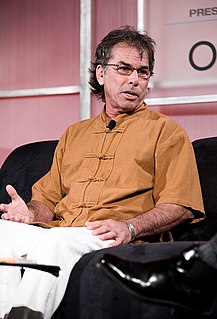A Quote by K. Eric Drexler
But while doing that I'd been following a variety of fields in science and technology, including the work in molecular biology, genetic engineering, and so forth.
Related Quotes
It is now widely realized that nearly all the 'classical' problems of molecular biology have either been solved or will be solved in the next decade. The entry of large numbers of American and other biochemists into the field will ensure that all the chemical details of replication and transcription will be elucidated. Because of this, I have long felt that the future of molecular biology lies in the extension of research to other fields of biology, notably development and the nervous system.
The second half of the 20th century was a golden age of molecular biology, and it was one of the golden ages of the history of science. Molecular biology was so successful and made such a powerful alliance with the medical scientists that the two together just flourished. And they continue to flourish.
In 2008, the Nobel Prize in Chemistry was awarded for work done on a molecule called green fluorescent protein that was isolated from the bioluminescent chemistry of a jellyfish, and it's been equated to the invention of the microscope in terms of the impact that it has had on cell biology and genetic engineering.
The solutions put forth by imperialism are the quintessence of simplicity...When they speak of the problems of population and birth, they are in no way moved by concepts related to the interests of the family or of society...Just when science and technology are making incredible advances in all fields, they resort to technology to suppress revolutions and ask the help of science to prevent population growth. In short, the peoples are not to make revolutions, and women are not to give birth. This sums up the philosophy of imperialism.

































